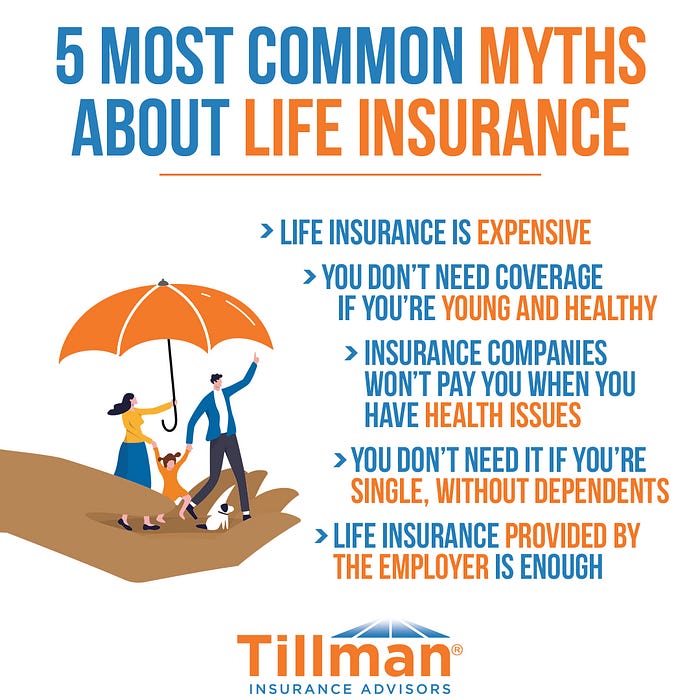
When it comes to life insurance, there are many myths and misconceptions that can prevent people from purchasing the coverage they need. Life insurance is a crucial component of financial planning, and it’s important to separate fact from fiction when making decisions about your coverage.
In this article, we will debunk five of the most common myths about life insurance.
Myth #1: Life insurance is only for people with dependents
While life insurance is often associated with providing for dependents in the event of a policyholder’s death, it can also serve other purposes. For example, life insurance can be used to pay off debts, cover funeral expenses, or provide an inheritance for loved ones.
Myth #2: Life insurance is too expensive
Life insurance can be surprisingly affordable, especially for younger and healthier individuals. Term life insurance policies, in particular, can provide significant coverage at a low cost.
Myth #3: My employer-provided life insurance is enough
Employer-provided life insurance policies often have low coverage limits and may not meet your financial needs. Additionally, if you leave your job, you may lose your coverage.
Myth #4: I don’t need life insurance because I’m young and healthy
Unfortunately, unexpected events can happen at any age. Life insurance provides financial protection for your loved ones in the event of your unexpected death, regardless of your age or health status.
Myth #5: I don’t need life insurance because I have no debt
While it’s true that life insurance can be used to pay off debts, it can also provide financial protection for your loved ones in other ways. For example, life insurance can help cover funeral expenses or provide an inheritance for your loved ones.
In conclusion, life insurance is a crucial component of financial planning, but there are many myths and misconceptions that can prevent people from purchasing the coverage they need. By separating fact from fiction, you can make informed decisions about your life insurance coverage and ensure that you and your loved ones are protected in the event of the unexpected.





